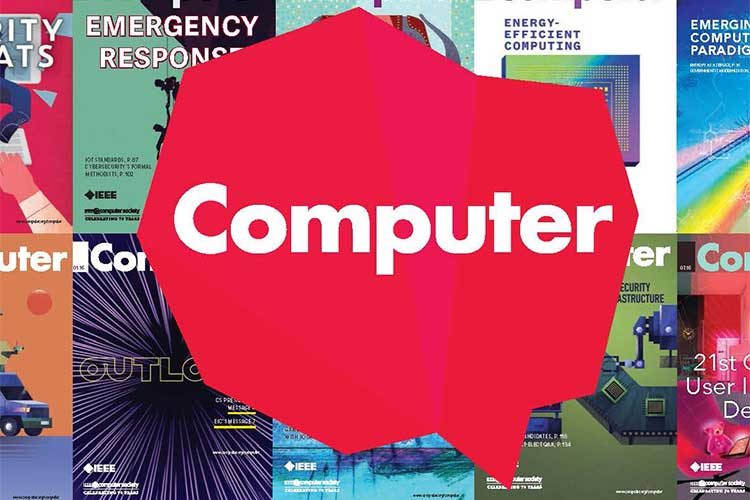Abstracts (co-1117@computer.org): CLOSED
Full paper: CLOSED
Publication date: November 2017
Computer plans a November 2017 issue on emerging developments in programming.
The emergence of the Internet of Things (IoT), in which many items are wirelessly connected to the Internet and one another, has given rise to the next development in programming and application-development ecosystems.
Computing systems today are ubiquitous and include connected appliances and vehicles, everyday gadgets, health-related wearables, and home and industrial applications. The possibilities abound. While connectivity is essential, it alone doesn’t achieve IoT’s promised impact; programming connected things into powerful applications is also necessary.
This special issue focuses on emerging and novel ideas, models, concepts, frameworks, platforms, languages, and ecosystem elements that will enable the programming of new types of systems and applications.
Currently, the programming paradigms used in the underlying logic of such applications are often just extensions of existing languages, frameworks and concepts, and require users to have computer-science expertise to program, manage, and maintain them. However, because of the number of IoT devices we will see and the everyday settings in which they’ll be used, this won’t scale. Thus, approaches that make programming IoT devices easier are in demand. New concepts like IFTTT’s “If this, then that” approach, Microsoft’s Touch Develop, and Google’s Blockly are already addressing this issue and promise to enable even children to program IoT systems.
This emerging world of programming must address new goals, assume new roles, and deal with more complex and less certain computation and interaction models. For instance, an IoT system that combines cyber and physical entities (such as an in-vivo medical sensor) might have to focus on safety and reliability. And people who download smart-home apps from future app stores will have to deal with the uncertainty of using multiple, independently developed apps and dealing with their potential interaction.
Topics suitable for this special issue include but aren’t limited to:
• IoT architectures and novel operating system abstractions
• programming languages and application models for IoT development
• emerging IoT platforms: the state of the art and the challenges
• novel roles, models, and ecosystem concepts for IoT application development
• user-level IoT programming concepts and tools
• programming concepts for IoT systems used in education
• programming models and support for application areas such as connected vehicles, cyber-physical systems, personal IoT devices, domestic robots, and drones
• programming under uncertainty
• programming with embedded dependability
• data-driven model learning
• IoT programming at scale (such as for smart cities or industries)
• programming support for privacy
• programming support for secure interactions
• programming support for incorporating existing ontologies for more expressive data models
There is a hard 6,000-word limit (figures and tables are equivalent to 300 words each) for final manuscripts. Authors should be aware that Computer cannot accept or process papers over the word limit.
Only submissions that describe previously unpublished, original, state-of-the-art research and that are not currently under review by a conference or journal will be considered.
Articles should be understandable by a broad audience of computer-science and -engineering professionals, avoiding a focus on theory, mathematics, jargon, and abstract concepts.
All manuscripts are subject to peer review on both technical merit and relevance to Computer‘s readership. Accepted papers will be professionally edited for content and style.
Authors of accepted papers are encouraged to submit multimedia, such as a 2- to 4-minute podcast, videos, or an audio or audio/video interview of the authors by an expert in the field, which Computer staff can help facilitate, record, and edit.
Questions?
Please direct any correspondence before submission to the guest editors:
• Michael Biegl, Karlsruhe Institute of Technology (michael.beigl@kit.edu)
• Florian Michahelles, Siemens (florian.michahelles@siemens.com)
• Hide Tojuda, Keio University (hxt@ht.sfc.keio.ac.jp)
• Steve Hodges, Microsoft Research (steve.hodges@microsoft.com)
For author guidelines and information on how to submit a manuscript electronically, visit www.computer.org/portal/web/peer-review/magazines. For full paper submission, please visit https://mc.manuscriptcentral.com/com-cs.


